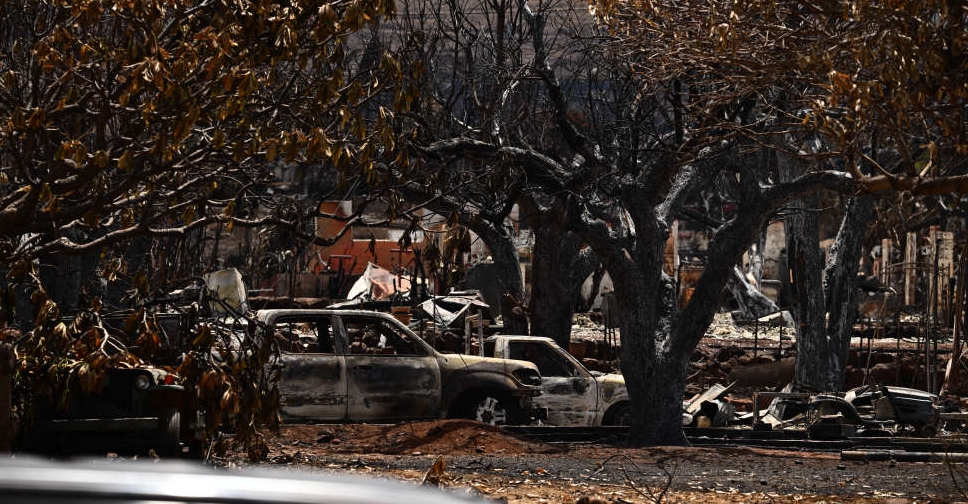
Maui's emergency management chief has defended his agency's decision against sounding sirens during last week's deadly wildfire amid questions about whether doing so might have saved lives.
Herman Andaya, administrator of the Maui County Emergency Management Agency, said sirens in Hawaii are used to alert people to tsunamis. Using it during the fire might have led people to evacuate toward the danger, he told reporters.
The grassland fire on August 8 raced down the base of a volcano sloping into the tourist resort town of Lahaina, killing at least 110 people and destroying or damaging some 2,200 buildings.
"The public is trained to seek higher ground in the event that the siren is sounded," Andaya said during a press conference, which grew tense at times as reporters questioned the government response during the fire.
"Had we sounded the siren that night, we're afraid that people would have gone mauka (to the mountainside) and if that was the case then they would have gone into the fire," Andaya said.
Maui, instead, relied on two different alert systems, one that sent text messages to phones and another that broadcast emergency messages on television and radio, Andaya said.
Since the sirens are primarily located on the waterfront, they would have been useless to people on higher ground, he said.
Hawaii Governor Josh Green also defended the decision not to sound sirens. Green has ordered the state attorney general to conduct a comprehensive review of the emergency response that would bring in outside investigators and experts, clarifying on Wednesday that the review is "not a criminal investigation in any way".
"The most important thing we can do at this point is to learn how to keep ourselves safer going forward," Green said.

 UK inquiry finds 'chilling' cover-up of infected blood scandal
UK inquiry finds 'chilling' cover-up of infected blood scandal
 Iranian President Raisi killed in helicopter accident, state media says
Iranian President Raisi killed in helicopter accident, state media says
 ICC prosecutor seeks arrest warrants for Israeli, Hamas leaders
ICC prosecutor seeks arrest warrants for Israeli, Hamas leaders
 Assange given permission to appeal against US extradition
Assange given permission to appeal against US extradition
 Israel intends to broaden Rafah sweep, Defence Minister tells US
Israel intends to broaden Rafah sweep, Defence Minister tells US




